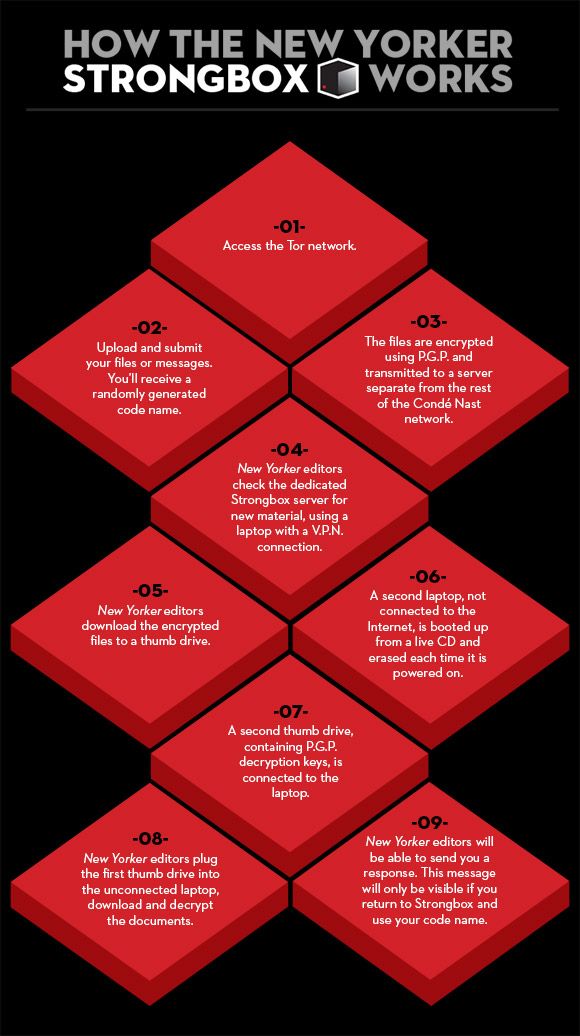“Our liberty depends on the freedom of the press, and that cannot be limited without being lost.”
Thomas Jefferson to Dr. James Currie, January 28, 1786
Since the news broke that the Department of Justice had secretly seized two months of phone records of the Associated Press reporters and editors, it has had chilling effect on the future ability of reporters to gather information from anonymous sources. On May 15, The New Yorker launched Strongbox “an online place where people can send documents and messages to the magazine,” affording a reasonable amount of anonymity:
It was put together by Aaron Swartz, who died in January, and Kevin Poulsen. Kevin explains some of the background in his own post, including Swartz’s role and his survivors’ feelings about the project. (They approve, something that was important for us here to know.) The underlying code, given the name DeadDrop, will be open-source, and we are very glad to be the first to bring it out into the world, fully implemented.

Click on image to enlarge
To get to Strongbox and begin using it to contact writers and editors at The New Yorker, just follow these two steps:
(1) Download and install software to access the Tor Project: https://www.torproject.org/ This should only take a few minutes.
(2)Once you have access to the Tor network, go to Strongbox at http://tnysbtbxsf356hiy.onion, where you will find further instructions on how to submit files and messages to The New Yorker.
Strongbox and Aaron Swartz
by Kevin Poulson
Aaron Swartz was not yet a legend when, almost two years ago, I asked him to build an open-source, anonymous in-box. His achievements were real and varied, but the events that would come to define him to the public were still in his future: his federal criminal indictment; his leadership organizing against the censorious Stop Online Piracy Act; his suicide in a Brooklyn apartment. I knew him as a programmer and an activist, a member of a fairly small tribe with the skills to turn ideas into code-another word for action-and the sensibility to understand instantly what I was looking for: a slightly safer way for journalists and their anonymous sources to communicate.
There’s a growing technology gap: phone records, e-mail, computer forensics, and outright hacking are valuable weapons for anyone looking to identify a journalist’s source. With some exceptions, the press has done little to keep pace: our information-security efforts tend to gravitate toward the parts of our infrastructure that accept credit cards.
Rachel Maddow interviewed the editor of The New Yorker magazine’s web site, Nicholas Thompson, about their “Strongbox” submission tool that allows sources to remain anonymous and untraceable when they submit a story tip.
This is how far we have come to protect the press and our constitutional right to know what the government is doing in our name. Thank you, Aaron and Kevin.


Recent Comments